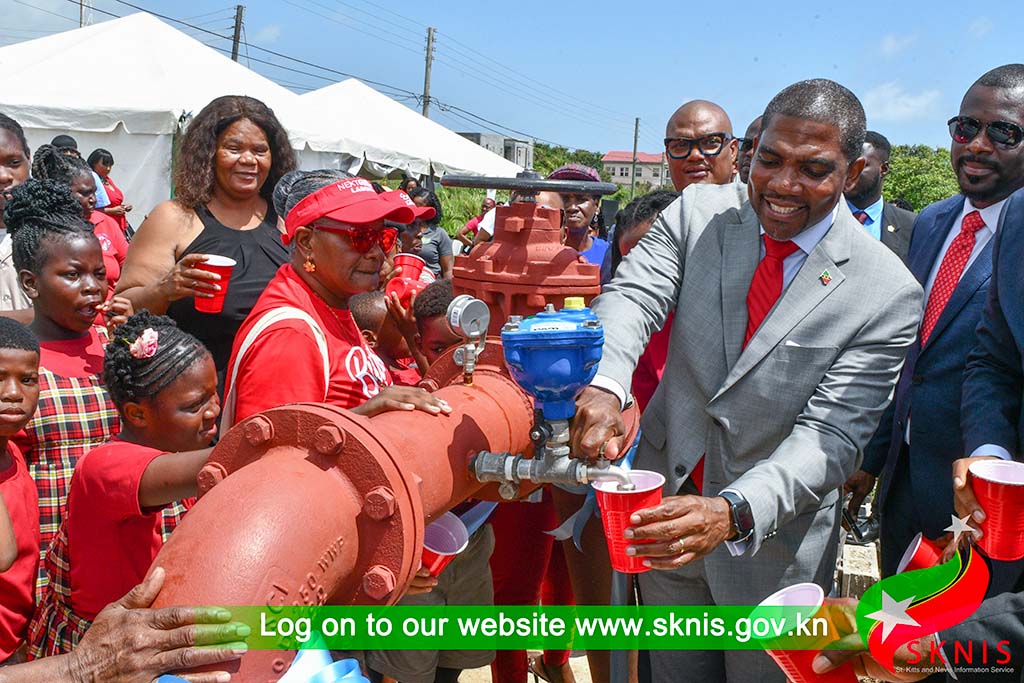Continued Increased Water Allocation to Address Challenges in 2025
The government of St. Kitts and Nevis has demonstrated a robust commitment to tackling the persistent water scarcity issues plaguing the islands, primarily driven by the intensifying effects of climate change. This commitment is reflected in the substantial increase in budgetary allocations dedicated to water resource management and infrastructure development. The proposed budget for the 2025 fiscal year marks a significant leap from the previous administration’s allocation, highlighting the current government’s prioritization of this critical sector. This proactive approach aims to ensure sustainable water access for communities across the islands, safeguarding public health and supporting economic stability.
The 2025 proposed budget of $44.2 million for the Water Services Department (WSD) represents a remarkable increase of over 400 percent from the $8.5 million allocated in 2022. This substantial investment underscores the government’s recognition of the urgency and importance of addressing the water crisis. The increased funding will enable the WSD to implement a comprehensive strategy that encompasses multiple facets of water resource management, from exploration and extraction to storage, distribution, and treatment. This strategic allocation of resources reflects a long-term vision for water security in St. Kitts and Nevis.
Beyond the financial commitment, the Ministry responsible for the WSD has undertaken several crucial initiatives to enhance water services and improve water accessibility for residents. The revitalization of the Water Advisory Board, dormant for an extended period, signifies a renewed focus on collaborative problem-solving and expert guidance in managing water resources. The establishment of a 24-hour water hotline provides a crucial communication channel for citizens to report issues and access timely assistance, enhancing responsiveness to water-related emergencies and concerns. These actions demonstrate a commitment to not only investing in infrastructure but also in improving service delivery and public engagement.
The proactive approach to exploring new water sources has yielded positive results, exemplified by the discovery and commissioning of a new well in Cayon. This new well significantly alleviates the long-standing water challenges faced by the community, demonstrating the tangible impact of strategic investments in water infrastructure. Furthermore, the planned construction of a one-million-gallon water storage facility in Cayon will further enhance the community’s water security, ensuring a more reliable and resilient supply. These targeted interventions address specific community needs and improve the overall resilience of the water supply system.
The government’s commitment extends beyond immediate solutions to encompass innovative approaches to water resource exploration and management. The ongoing drone-based airborne geophysical survey represents a cutting-edge approach to identifying untapped underground water sources. This technology allows for efficient and comprehensive surveying of potential aquifers, offering a cost-effective and environmentally friendly method of locating new water reserves. This forward-thinking approach demonstrates a commitment to leveraging technology for sustainable water resource management.
In addition to exploring new sources, the government is investing in upgrading existing infrastructure and developing new treatment facilities. The replacement of aging pipes on the northern side of St. Kitts addresses critical infrastructure deficiencies and improves the efficiency of water distribution, minimizing losses due to leaks and ensuring a more reliable supply for residents. The construction of two desalination plants offers a crucial alternative source of freshwater, reducing reliance on rainfall and enhancing the islands’ resilience to drought conditions. The planned Shadwell treatment plant further strengthens the commitment to providing safe and potable water by ensuring proper treatment and purification of the water supply. These comprehensive measures reflect a holistic approach to water management, encompassing both immediate needs and long-term sustainability.
Share this content:












Post Comment